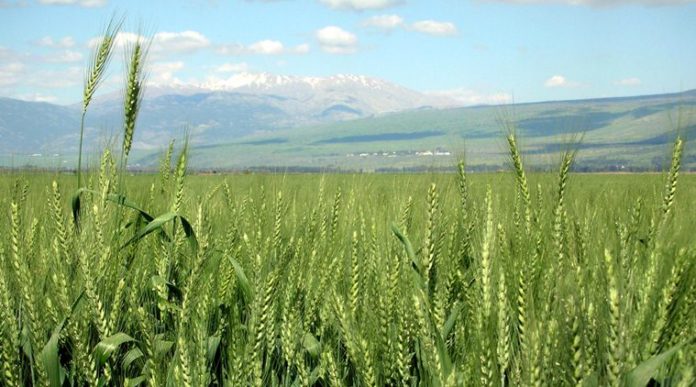New Delhi (NVI): Wheat procurement by government agencies has touched 341.56 LMT (Lakh Metric Tonnes), surpassing last year’s figures of 341.31 LMT, despite the COVID-19 outbreak and the subsequent nationwide lockdown.
“Wheat harvesting generally starts towards end of March and procurement commences in the first week of April every year. However, with the imposition of national lockdown with effect from midnight of 24 & 25.03.2020, all operations came to a standstill,” Ministry of Consumer Affairs, Food & Public Distribution said in a statement today.
The crop had ripened by then and was ready for harvesting, the ministry said. Considering this, the Centre gave relaxation to start agricultural and related activities during the lockdown period, and the procurement could start from April 15 in most of the procuring states, it said, adding that Haryana started little late on April 20.
The ministry further said that the biggest challenge was to ensure that procurement is done in a safe manner during the pandemic. “This was achieved through a multi-pronged strategy of awareness creation, social distancing and deployment of technology,” the ministry said.
The number of purchase centers was increased substantially reducing the farmer footfalls in individual purchase centers. New centers were set up using every facility available at gram panchayat level and the numbers were increased sharply in the major procuring states like Punjab where it went up from 1836 to 3681, 599 to 1800 in Haryana and from 3545 to 4494 in Madhya Pradesh.
Using technology, farmers were provided specific dates and slots to bring their produce which helped in avoiding overcrowding. Strict social distancing norms were followed and sanitization activities were undertaken regularly. In Punjab, every farmer was allotted specific spaces earmarked for dumping of stocks and no one else was allowed to enter those areas, the ministry said.
Wheat procurement target has been set at 40.7 million tonnes (MT) for the 2020-21 marketing year. Although the wheat marketing year runs from April-March, the bulk of procurement is normally done in the first three months.
Apart from the threat of the spread of virus, there were 3 major challenges faced by the procuring agencies in wheat procurement. As all the jute mills were closed, the production of jute bags used for filling of procured wheat stopped, creating a major crisis. This was tackled by using more plastic bags, supplemented by used bags with very strict quality conditions.
The ministry said that there were unseasonal rains in all the major producing states leading to wheat getting exposed to water. This posed a major threat to the farmers as such stocks could not be procured under normal specifications. GOI and Food Corporation of India (FCI) intervened while making sure that the produce so procured meets the minimum quality requirements of the consumers. the ministry said.
“Third challenge was the tight labour supply position as well as the general fear created among the masses about the virus. This was addressed by taking a series of confidence building measures at the local level by the state administration. Labour was provided with adequate protection safety gears like masks, sanitizers etc. and other precautionary measures were also taken to ensure their safety.
With the concerted and well-coordinated efforts by GOI, FCI, State Governments and their agencies, procurement of wheat could be undertaken very smoothly in all surplus states, helping farmers and replenishing stocks in the central pool, the ministry added.






